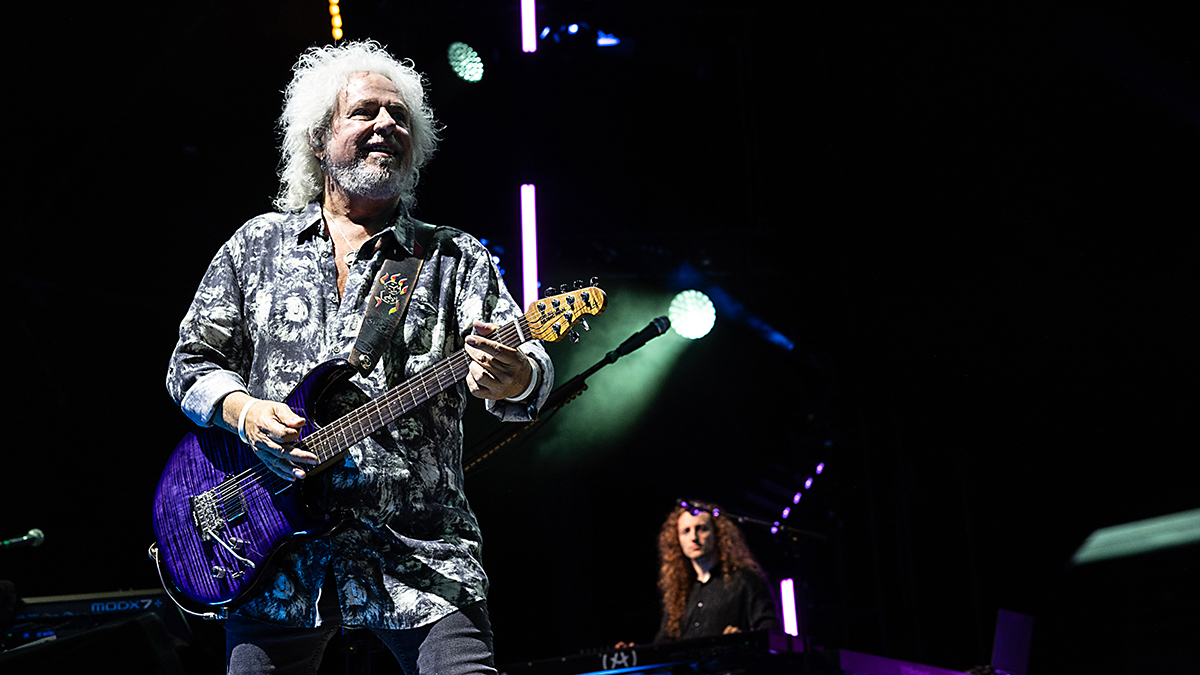
It’s a longstanding cliché that budding male guitarists pick up the instrument in order to improve their chances of success with women. And while many start playing for personal reasons – like improving mental health and life satisfaction – the cliché almost certainly holds up for many aspiring players.
Sure, being able to play guitar is a pretty impressive skill to those not versed in the six-string – anyone who’s grabbed the acoustic guitar in the corner of the room at a party and started strumming Wonderwall will attest to the rapturous applause and crowd participation that so often follows – but what if it’s not just women heterosexual male guitar players are trying to impress?
Naturally, there’s not a whole lot of research into the sexual and societal motivations of aspiring male guitar players, but thanks to a convenient study which looks exclusively at those who take up guitar in the extreme metal vein, we now have a better understanding of the motivations of those in one genre, at least.
The study – entitled Extreme metal guitar skill: A case of male-male status seeking, mate attraction, or byproduct?, authored by Tara DeLecce, Farid Pazhoohi, Anna Szala and Todd K. Shackelford – suggests that heterosexual extreme metal guitarists, for the most part, don’t play to increase their mating chances, but rather to show off to other straight male guitarists.
The study was, in fact, published earlier this year, but was recently brought to public attention when the Quite Interesting Twitter account – managed by the team behind British TV show QI – wrote: “Research shows that heterosexual men who learn to play extreme metal guitar are mostly motivated to do so in order to impress other heterosexual men.”
A sample group of 44 heterosexual males were surveyed for the study, which explored “the reasoning behind investment in technical guitar skills” by taking a look at their practice habits, sexual behavior and feelings of competitiveness toward other men.
The results of the study “indicated that time spent playing chords predicted desire for casual sex with women, whereas perceptions of playing speed positively predicted intrasexual competitiveness," in plain terms, a wish to impress other men.
All the latest guitar news, interviews, lessons, reviews, deals and more, direct to your inbox!

The study does highlight, though, that extreme metal is “heavily male-biased, not only among the individuals that play this style of music, but also among the fans of the genre.
“Therefore,” it continues, “it is unlikely that extreme metal musicians are primarily trying to increase their mating success through their music. However, musicians in this genre heavily invest their time in building technical skills (e.g., dexterity, coordination and timing), which raises the question of the purpose behind this costly investment.
“It could be that men engage in this genre mainly for status-seeking purposes: to intimidate other males with their technical skills and speed and thus gain social status.”
So there you have it, guys. Millions of years of evolution and heterosexual human males are no longer chest-beating, but rather turning to electric guitar shredding to show supremacy. Those of the extreme metal persuasion, at least.
We stress that 44 participants is rarely a sufficient sample size to confidently draw conclusions as to the motivations of extreme metal’s many thousands of guitar players, but the study certainly makes for an interesting insight.
Sam was Staff Writer at GuitarWorld.com from 2019 to 2023, and also created content for Total Guitar, Guitarist and Guitar Player. He has well over 15 years of guitar playing under his belt, as well as a degree in Music Technology (Mixing and Mastering). He's a metalhead through and through, but has a thorough appreciation for all genres of music. In his spare time, Sam creates point-of-view guitar lesson videos on YouTube under the name Sightline Guitar.

